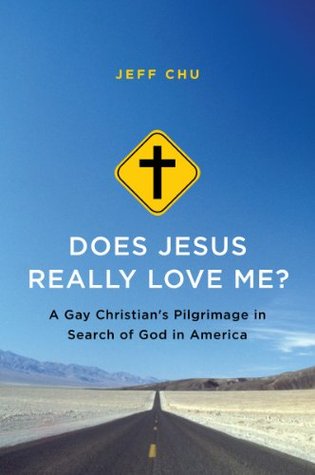More on this book
Community
Kindle Notes & Highlights
by
Jeff Chu
Read between
April 18 - May 13, 2019
they didn’t lose their faith so much as have it taken from them. In a denomination that believes in free will, they were stripped of it. They were taught that homosexuality was their key choice, a sinful and eternity-changing choice that put God off-limits to them.
The life I am living
The contrast between Christian people—who just want to obey God and obey the Bible—and Christian leaders has been like night and day. Christian leaders have a responsibility to do image management and damage control, and that leads them to a natural tendency toward Phariseeism.
Today, because of the religious right, the unpardonable sin is homosexuality. For my parents’ generation, it was divorce and remarriage, but that’s not an issue anymore—and I don’t think homosexuality will be an unpardonable sin in a generation.
Resolutions in the Covenant do not create a line one is expected then to toe; it’s just a statement of what the majority believes.
there is no Biblical and theological consensus in this church on homosexuality. There are some who hold very traditional understandings, and there are others who hold a more open theological position. But where there is consensus is on the commitment of this church community to love and welcome these two sisters with open arms, to receive communion from them without any hesitation, and to listen to one of their voices sing beautifully from our choir loft. Their sexual orientation is different from the rest of us, and that is a challenge for some of us, but we are still us. We are the
body of Christ, we are the church, and we commit to loving one another regardless of our mutual brokenness and frailty. Because of Charlotte and Joan, Salem Covenant has become a welcoming congregation for others, too.
His sexuality has become so much of a public cause for him that it has almost entirely ceased to serve any private purpose.
“Here’s how I came at it,” he explains. “If God made people inherently sinful, that would be unfair. He has to give us a choice between right and wrong. And if I didn’t have a choice to be gay, how could it be wrong?”
he had begun “to feel that sitting around and talking about whether God actually loves gay people is quite uninteresting. There are far more interesting things in our faith to discuss,
and far more important work that our faith requires of us.”
“Some may say I need to repent. What I need to repent from tonight is that I have not trusted God with who I believe God has made me to be in the first place.”
if the church doesn’t get this right, it’s not going to stop gay people from being accepted in society. What it’s really going to do is turn people off Christianity.”
“If the church doesn’t learn how to be loving to gay people soon, the damage will have been done. We’ll see a generation of young people who want nothing to do with the church. And that would be a great tragedy.”
“They want that sense of belonging to a community, but they want to do it as people of substance.
“How can we get more people into the church?” I say, “That’s not your job. The job is, How do you meet the needs of the community? The church
exists to meet the needs of the world, not to build up the institutional church.
“Many churches say that they’re open and affirming, which means, ‘We’re so open-minded, we’ll let you infected people come be part of our congregation!’
The default setting for most of us, he continues, is to believe that God is judging us. “The epic tragedy is that the organization on earth that is supposed to represent the Good Shepherd is better known for sacrificing the lambs or scattering them.
“Church is an uncomfortable place for a lot of people, but it seems like at Highlands, there are a lot of people who are ready to be uncomfortable
together.”
“Highlands is radical inclusivity. It’s Christ-centered and justice-oriented.”
Highlands is just really committed to the process of trying to listen to what God wants.”
What I find to be unique about Highlands is less its theological position on homosexuality than its stance on humanity. While remaining committed to deep and constant engagement with the Bible, it encourages people not
just to come to services but to bring their whole selves, not just their sacred stances but also their profane fears and insecurities. They are called to do what is uncommon in the church: question boldly, without fear and in confidence. “Can we live and love without labels?” Mark Tidd asks. “Can we help each other do justice, love mercy, and walk humbly with our God?”
We’re not in pursuit of people. We’re in pursuit of God, and through that pursuit, people like us end up coming.”
“My motive is just to live a life that’s not contrary to the Gospel of Jesus Christ. It’s to live according to the same standards you’d expect of straight people
in the church.”


